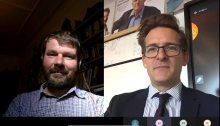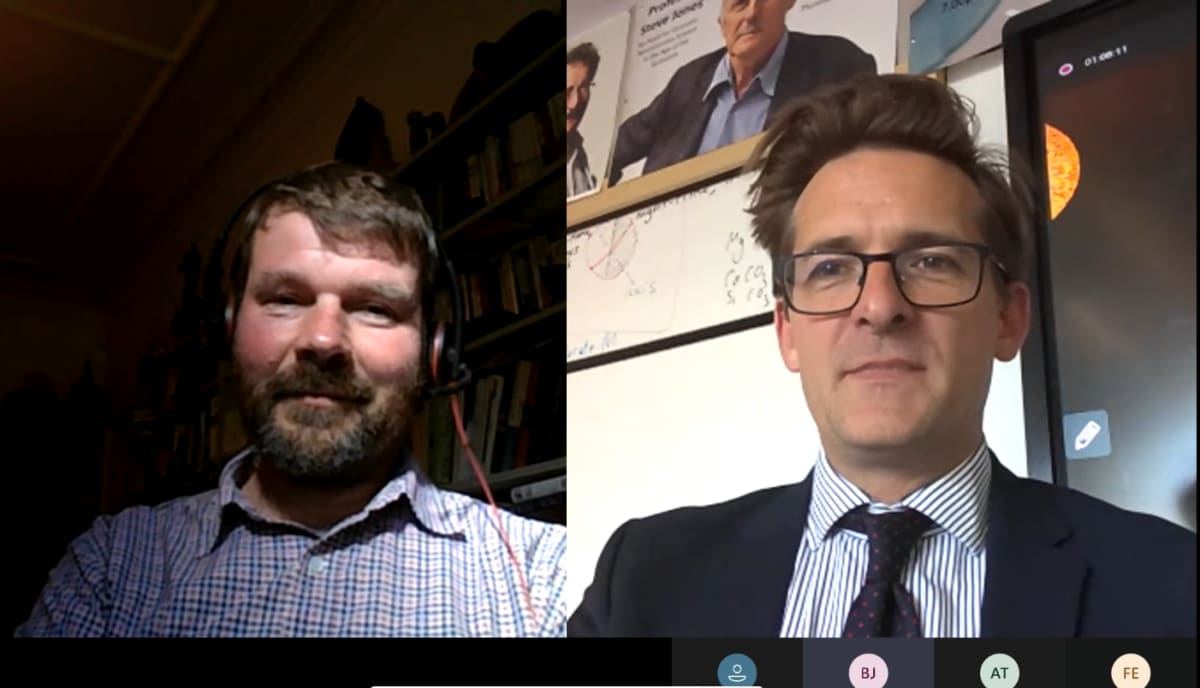






Alleyn’s Celebration of Science continued with an eye-opening investigation of climate change from Dr Paul Chambers on Thursday, 6 May.
Dr Chambers has worked in the field of climate change for more than 20 years, in everything from the EU emissions trading scheme to international climate negotiations and international collaborations. He has worked in the UK and Indonesia trying to encourage the world’s major economies to agree to ambitious climate goals. And more recently his focus has been on UK domestic policy and the energy efficiency of buildings.
Dr Chambers began his talk with a run-down of how our climate is changing. Through the eyes of a sceptic, he considered whether the degree Celsius change we have seen over the last 140 years is in fact just part of the swings between hot and cold that we have seen the planet making throughout the last 2,000 years. But, he concluded, that the rate of change in the last 50 years has shot off the scale and the evidence pointed towards humans unquestionably driving climate change.
He demonstrated how there was much more of this to come if we do not change patterns, highlighting the truly frightening scenarios in which we will see temperature rises of up to 4-6 degrees by the end of the century.
He explored the impact that these changes would have – from the devastation to the natural environment and wildlife which cannot adapt to these changes quickly enough to the impact on human life, including the effect of losing the glaciers in the Himalayas alone which more than 2 million people depend on for water. He explained how we would see more floods and more droughts, bigger storms, unpredictable seasons, and reduced crop yields.
To combat this devastation, Dr Chambers argued that we need radical change to reduce greenhouse gas emissions fast. He explored some of the solutions, from decarbonising energy production to carbon capture and the growth of renewables, including solar power in particular owing to how cheap it is. He argued the need to switch to low carbon transport and improve the energy efficiency of buildings as well as stopping deforestation and land use change, restoring peatlands, and introducing carbon pricing so it is no longer free to pollute. And he talked about how our food is grown and transported and how switching away from eating beef, lamb and cheese can make a significant impact.
Dr Chambers concluded that we are not all villains; he explained that as consumers, we are just buying the products available to us and using the energy sources accessible to us. He argued that change must be driven by the government but that it is a virtuous circle, and we need people to be willing to change if we are to succeed.
He encouraged us all to think about who we vote for when we can vote, to consider who we bank with, to write to our MP and to check the labels when thinking about the products we buy.
Pupils and staff asked insightful questions, from “What’s the best way we can inform people in power to make change about the use of single-use plastic?” to “How can we avoid palm oil?”
Dr Chambers finished by sharing his optimism about the growing awareness of climate change among young people: “Your generation has started to drive change,” he said. “It gives me great hope we can change the course of history. The younger generation have the future in their hands, and it is all to play for.”
Thank you, Dr Chambers, for such an insightful talk.
